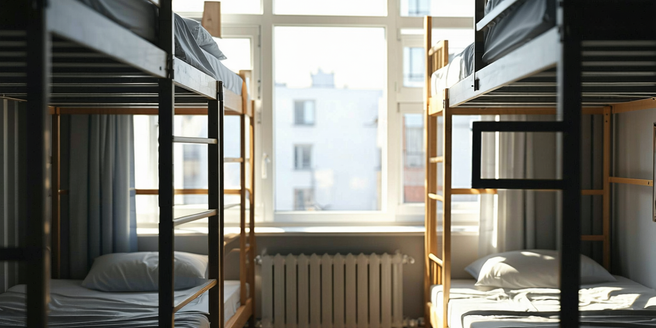Finding Cheap Housing Near Universities

Understanding the Rental Market Near Universities
Understanding the rental market near universities is crucial for students seeking affordable accommodation. University areas often have high demand for housing due to the influx of students each academic year. This demand can drive up rental prices, but savvy students can navigate this by becoming familiar with the typical rental cycles and trends in their university’s vicinity. For instance, many leases begin in the late summer, coinciding with the start of the academic year. Students should start their search several months in advance, when there is a greater selection of properties and potentially lower prices. Additionally, exploring different types of accommodations, such as shared housing or renting a room in a larger house, can offer more affordable options than traditional single-unit apartments.
Researching Budget-Friendly Neighborhoods
Researching budget-friendly neighborhoods is an essential step in finding affordable housing near universities. Location is a primary factor influencing rental prices, as areas closer to campus or city centers typically command higher rents due to their convenience and proximity to amenities. Students should expand their search to include neighborhoods further from the university but still accessible by public transport or bike routes. These areas might offer lower rents and a more relaxed ambiance, which can be conducive to studying. Utilizing online tools and local resources, such as city guides or community forums, can help students identify neighborhoods that are both affordable and safe. Additionally, speaking with current students or university housing advisors can provide valuable insights into lesser-known but budget-friendly areas.
Leveraging University Housing Resources
Leveraging university housing resources can significantly aid students in finding affordable accommodation. Many universities offer resources specifically designed to assist students in their search for housing. These may include online housing portals, lists of recommended landlords, and rental agreements that adhere to student-friendly terms. University housing offices often maintain up-to-date listings of available properties and may even offer matchmaking services for students seeking roommates to share costs. Additionally, universities sometimes have partnerships with local landlords, ensuring reliable and more economical housing options for their students. By taking advantage of these resources, students can navigate the housing market with greater ease, gain access to vetted properties, and potentially save money on rent and other housing-related expenses.
Utilizing Online Platforms for Affordable Listings
Utilizing online platforms for affordable listings can be an effective strategy for students searching for budget-friendly housing near universities. Websites and apps dedicated to rental accommodations offer a vast array of listings that cater to different budgets and preferences. Students can filter searches based on criteria such as price, location, and amenities to find options that suit their financial situation. Many platforms also feature reviews and ratings from previous tenants, providing insights into the condition and management of properties. Additionally, online platforms often have built-in tools for setting alerts on new listings, ensuring that students remain informed about the latest available options. It is important, however, to verify the legitimacy of listings and exercise caution to avoid scams prevalent in the online rental market.
Viewing and Evaluating Potential Rentals
Viewing and evaluating potential rentals is a critical part of the housing search process for students. Once suitable properties are identified, scheduling viewings is essential to assess the living conditions and ensure the space meets personal standards and preferences. During the viewing, students should check for important factors such as security features, the state of appliances, and the availability of essential services like heating and internet. It’s also beneficial to observe the noise levels and accessibility to public transport and other daily essentials. Taking photos and notes during the visit can aid in comparing different properties later. Engaging in conversations with current or past tenants, if possible, can also provide a clearer perspective on living conditions and management responsiveness. These steps help in making an informed decision on the best housing option.
Budgeting Strategies for Student Accommodation
Budgeting strategies for student accommodation are vital for maintaining financial stability while studying. Students should start by calculating their total monthly income, including any savings, scholarships, or part-time job earnings, and then allocate a reasonable portion for rent. A common guideline is to spend no more than 30% of one’s income on housing costs, although students may need to adjust this based on personal circumstances. Tracking monthly spending on additional expenses like utilities, groceries, and transport is also crucial to identify areas for potential savings. Additionally, students can seek cost-sharing opportunities, such as living with roommates or opting for co-living apartments, to reduce individual rent responsibility. Adopting smart shopping habits, utilizing student discounts, and routinely reviewing budgets can further aid in managing finances effectively while balancing academic demands.